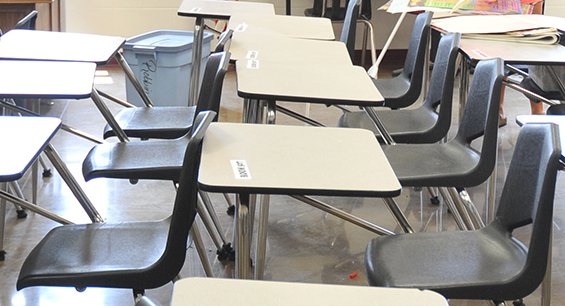A total of 125 of Arkansas’ approximately 1,050 public schools — or 12% — improved their state accountability scores in the 2020-21 school year compared with the 2018-19 school year that preceded the covid-19 pandemic.
The Arkansas Department of Education’s Division of Elementary and Secondary Education posted the 2020-21 school accountability reports, including the Every Student Succeeds Act, or ESSA, index scores, to the agency’s website Friday.
Absent this year are accompanying school A-F letter grades based on the numerical scores. A state law passed earlier this year waived for one year the letter grade requirement.
The posted reports include scores for the different sub-groups of students in a school, including racial and ethnic groups and those who have special needs or are non-native English-language learners.
The numeric scores depend in large part but not entirely on the results from the state-required ACT Aspire exams given in third-through-10 grades last spring. The spring tests occurred near the end of a pandemic school year in which educators scrambled to teach students in class and those who learned online from their homes.
The Aspire results, reported earlier this summer, showed declines in achievement at every tested grade and in every subject area, with the largest declines being in math.
State officials said this week that they were not surprised that the school accountability scores fell for most schools.
“There is no doubt that it has been a challenging year-and-a-half in education,” Arkansas Education Secretary Johnny Key said Friday in a statement announcing the posted accountability data. “Arkansas students and educators have faced unprecedented circumstances, but they have risen above them all and continued learning.
“The results released today reflect some highlights and positive movement among some school districts,” Key also said, “and because of that, we know student learning can and will persist despite the circumstances. While we know there is still work to do, today, as always, I am proud of our educators and students who faced the pandemic head-on and rose above its challenges.”
State education leaders noted that about half of the schools — 531 — earned a “value added growth score” of 80 or better. That’s an indication that students at the school, on average, achieved at or better than their expected achievement rate based on past achievement rates.
The 2021 school accountability data — required annually by the federal Every School Succeeds Act — is the first compiled since the 2018-19 school year.
Arkansas and all other states received from the federal government waivers of the student testing requirements at the end of the 2019-20 school year, which was cut short beginning in March 2020 by the pandemic.
In Arkansas, school campuses closed to on-site instruction in mid-March and efforts were made through the end of the school year to provide instruction virtually and/or through packets of paper lessons.
In contrast to many other states, all Arkansas public schools provided on-site instruction for the entire 2020-21 school year. However, there were times when outbreaks of covid-19 caused a class, grade, school or district to temporarily shift to online instruction.
Arkansas did not seek a waiver from the U.S. Department of Education of the 2020-21 testing and school accountability requirements that call for at least 95% of eligible students at a school to take the tests or the school’s accountability score is reduced.
Not all Arkansas schools reached the 95% tested goal last spring but statewide 97 percent of students were tested.
Each school’s data can be found on the state’s My School Info website: myschoolinfo.arkansas.gov. After searching for a particular school, click on the school’s name and then the “Reports” tab and then the ” ESSA” School Index tab.
